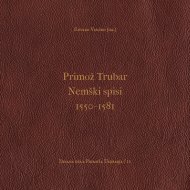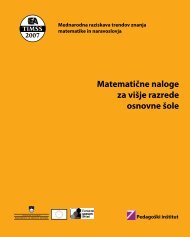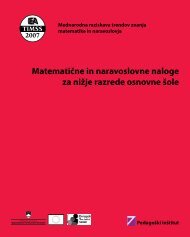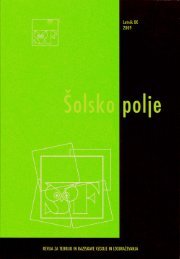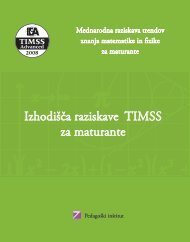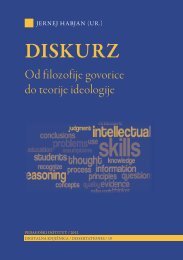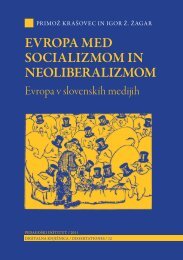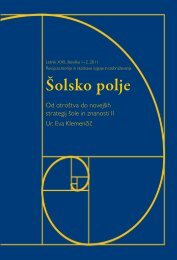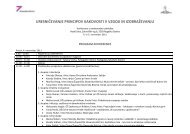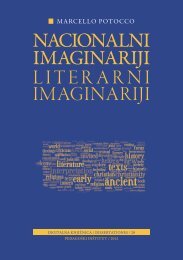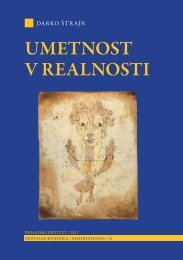Šolsko polje, letnik XX, številka 5-6, 2009: Vloga ... - Pedagoški inštitut
Šolsko polje, letnik XX, številka 5-6, 2009: Vloga ... - Pedagoški inštitut
Šolsko polje, letnik XX, številka 5-6, 2009: Vloga ... - Pedagoški inštitut
You also want an ePaper? Increase the reach of your titles
YUMPU automatically turns print PDFs into web optimized ePapers that Google loves.
108 ŠOLSKO POLJE LETNIK <strong>XX</strong> ŠTEVILKA 5/6discussing prevailing discourse topics. Establishment of the OHR afterDayton, with its actions and interactions, is seen as a semiotic act in whichthe final word and interpretation of everything related to transition andfuture European integrations in Bosnia rests with the HR.Although discourses on democratization and transition have blurredboundaries, democratization or the so-called ‘post-war period’, conditionallyspeaking, began in 1996 and ended in 2000, when the transitionstage began which still continues today. The OHR-style democratizationand, more recently, Europeanization discourses are rarely criticizedexcept from an extremely nationalistic point of view. In a world where‘social power is based on privileged access to socially valued resources,such as wealth, income, position, force, group membership, education orknowledge power’ (Van Dijk, 1993a: 254), it seems that BiH citizens eitherdon’t have or don’t have enough of such power given the little resistanceto OHR’s activities during the period. The reasons are plentiful: weak publicopinion, corrupted and discredited politicians who are using populistrhetoric, the historical legacy of the Balkans as the Other, or mistrustand insecurity aggravated by the poverty typical for any post-war society.This type of discourse-as-social-interaction presumes subject positionsand through occupying them both the OHR and BiH citizens becomewhat they are. In the same way, occupation of the aforementioned subjectpositions, i.e. the dominant (OHR) and the dominated (BiH citizens),reproduces and temporarily fixates a certain social order that, wrongly,appears to be commonsensical. In this situation, BiH politicians, althoughsometimes appearing hesitant to attract votes, cannot but agree to theOHR’s decisions which creates a culture of dependence. Via its Internetportal, the OHR informed the public, used strategies of positive self – andnegative other-presentation (Majstorović, 2006), sanctioned, brought legislationor otherwise promoted political stances. To make their dominancemore efficient, the OHR also used all modern communication resourcesavailable from press officers, through press releases and press conferenceswhere their statements appear in various frames and recontextualizations(Bernstein, 1990), such as extradition of war criminals to ICTY framedas a necessary precondition for entering the EU or frequent appealsto intellectuals to help BiH accept the changes and transition.



